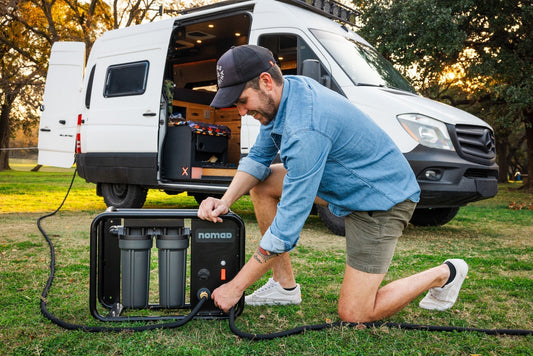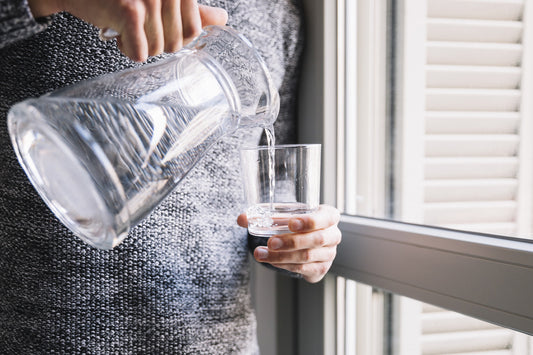Introduction
Whether you're sipping from a bottle after a vigorous workout or enjoying a glass poured from your kitchen tap, water is an indispensable part of our daily lives. It nourishes, refreshes, and hydrates, playing a vital role in our health and well-being. But have you ever stopped to consider the source of your water - bottled or filtered? If so, you're not alone. The bottled water versus filtered water debate has been a topic of discussion for several years. Both have their pros and cons, and choosing between the two isn't as straightforward as one might assume. This article provides an in-depth analysis and comparison of bottled water and filtered water, exploring their advantages, drawbacks, environmental impact, cost, and health implications.
Understanding Bottled Water
When we talk about bottled water, we refer to water packaged in plastic or glass bottles, available in various sizes, from small single-serve bottles to large multi-gallon containers. Over the years, bottled water has gained massive popularity, thanks to its convenience and the widespread perception of its superior quality.
Pros of Bottled Water
Bottled water's most significant advantage is its convenience. It's portable, easily accessible, and perfect for on-the-go situations like traveling, picnicking, or attending a public event. Besides, bottled water undergoes a rigorous purification process, ensuring it's safe for consumption. Many people also appreciate the taste of bottled water, which is often perceived as being cleaner or fresher than tap water.
Cons of Bottled Water
However, the convenience and perceived quality of bottled water come with several downsides. The most glaring one is its environmental impact. The majority of bottled water comes in plastic bottles, contributing significantly to plastic pollution. In addition, while some people prefer the taste of bottled water, it's worth noting that taste is subjective, and what one person finds refreshing, another might find flat or bland.

Image by Freepik
Understanding Filtered Water
Filtered water, on the other hand, is tap water that has been passed through a filtration system to remove impurities and contaminants. Filtration systems can range from simple jug filters used in the home to complex industrial-scale systems used in water treatment plants.
Pros of Filtered Water
The primary advantage of filtered water is its safety and purity. Good quality water filters can remove a wide range of contaminants, including chlorine, heavy metals, bacteria, and viruses, making the water safer to drink. Filtered water also tends to be much more cost-effective in the long run than regularly buying bottled water. Many people find that filtered water tastes better than both tap water and bottled water, with the filtration process removing elements that can negatively affect the taste.
Cons of Filtered Water
Despite the benefits, filtered water isn't without its drawbacks. Installing a water filtration system can be an expensive, time-consuming process, and filters require regular maintenance and replacement to function effectively. Additionally, not all filtration systems are created equal - some filters are more effective at removing certain types of contaminants than others.
Major Differences between Bottled Water and Filtered Water
When it comes to quality and safety, both bottled and filtered water can provide clean, safe drinking water. However, the two differ significantly in terms of cost, environmental impact, and taste. While bottled water offers convenience, it comes with a higher price tag and significant environmental concerns. Conversely, filtered water requires an initial investment and ongoing maintenance but is generally more cost-effective and eco-friendly in the long run.
Environmental Impact
Let's delve deeper into the environmental implications of both bottled and filtered water. It's an essential factor to consider in our era of increasing environmental consciousness and the urgent need to reduce pollution and waste.
Bottled Water's Environmental Impact
Bottled water's environmental footprint is quite heavy. Plastic bottles account for a significant portion of global plastic waste, much of which ends up in landfills or the ocean, where it takes hundreds of years to degrade. The production of bottled water also requires a substantial amount of energy and water. According to some estimates, it takes three times the volume of water to produce a single bottle of bottled water as it does to fill it
Filtered Water's Environmental Impact
Filtered water, on the other hand, has a much lighter environmental footprint. Although the production of water filters does have an environmental impact, it's far less than that associated with bottled water. Moreover, filters are typically used for longer periods, and many are recyclable, further reducing their environmental impact.

Cost Analysis
When it comes to cost, there's a clear distinction between bottled water and filtered water. Bottled water can be surprisingly expensive, especially when consumed regularly. The cost not only includes the water itself but also the energy and resources involved in bottling, packaging, transporting, and refrigerating it. On the other hand, while filtered water requires an initial investment for the filtration system and ongoing costs for filter replacements, it's generally much more cost-effective in the long run.
Health Implications
When considering bottled water versus filtered water, one must not overlook health implications. Both options can provide safe drinking water, but they do have potential health concerns associated with them.
Health Impact of Bottled Water
While bottled water is generally safe to drink, there are concerns about chemicals from the plastic bottles leaching into the water, particularly if the bottles are exposed to heat or stored for a long time. Some studies have suggested that certain types of plastic bottles can release substances like BPA and phthalates, which are potential endocrine disruptors.
Health Impact of Filtered Water
On the flip side, filtered water allows you greater control over your water quality. Different filters can remove different contaminants, enabling you to target specific concerns based on your local water quality. However, it's crucial to maintain your filtration system properly to ensure its effectiveness. Poor maintenance can lead to a build-up of contaminants, which can then leach back into the water.

Image by diana.grytsku on Freepik
Conclusion
Deciding between bottled water and filtered water involves considering a multitude of factors, from cost and convenience to health implications and environmental impact. There's no one-size-fits-all answer; the best choice depends on individual needs, circumstances, and values. However, with the information provided in this article, we hope you're now better equipped to make an informed decision that suits your lifestyle and aligns with your personal priorities.
Frequently Asked Questions (FAQs)
Is filtered water better than bottled water?
The answer to this question depends largely on personal circumstances and preferences. Filtered water is often a more eco-friendly and cost-effective choice, but bottled water offers unmatched convenience.
Does filtered water taste better than bottled water?
This is subjective and can depend on the quality of your local tap water, the type of filter used, and personal taste preferences. Some people find that filtered water tastes fresher and cleaner than bottled water, while others prefer the taste of certain brands of bottled water.
Is bottled water safer than filtered water?
Both bottled water and filtered water can provide safe, clean drinking water. However, with a good quality water filter, you can control the removal of specific contaminants based on your local water quality.
Can I use filtered water instead of bottled water?
Absolutely. Many people choose to use filtered tap water as a cost-effective, eco-friendly alternative to bottled water. All you need is a reliable filtration system and regular maintenance to ensure clean, safe drinking water.
What are the best water filters to use?
The best water filter for you depends on your specific needs and the quality of your local tap water. It's recommended to test your tap water to identify any contaminants that need to be addressed, and then choose a filter that effectively removes those contaminants.
People also search for Hot Water Dispensers





